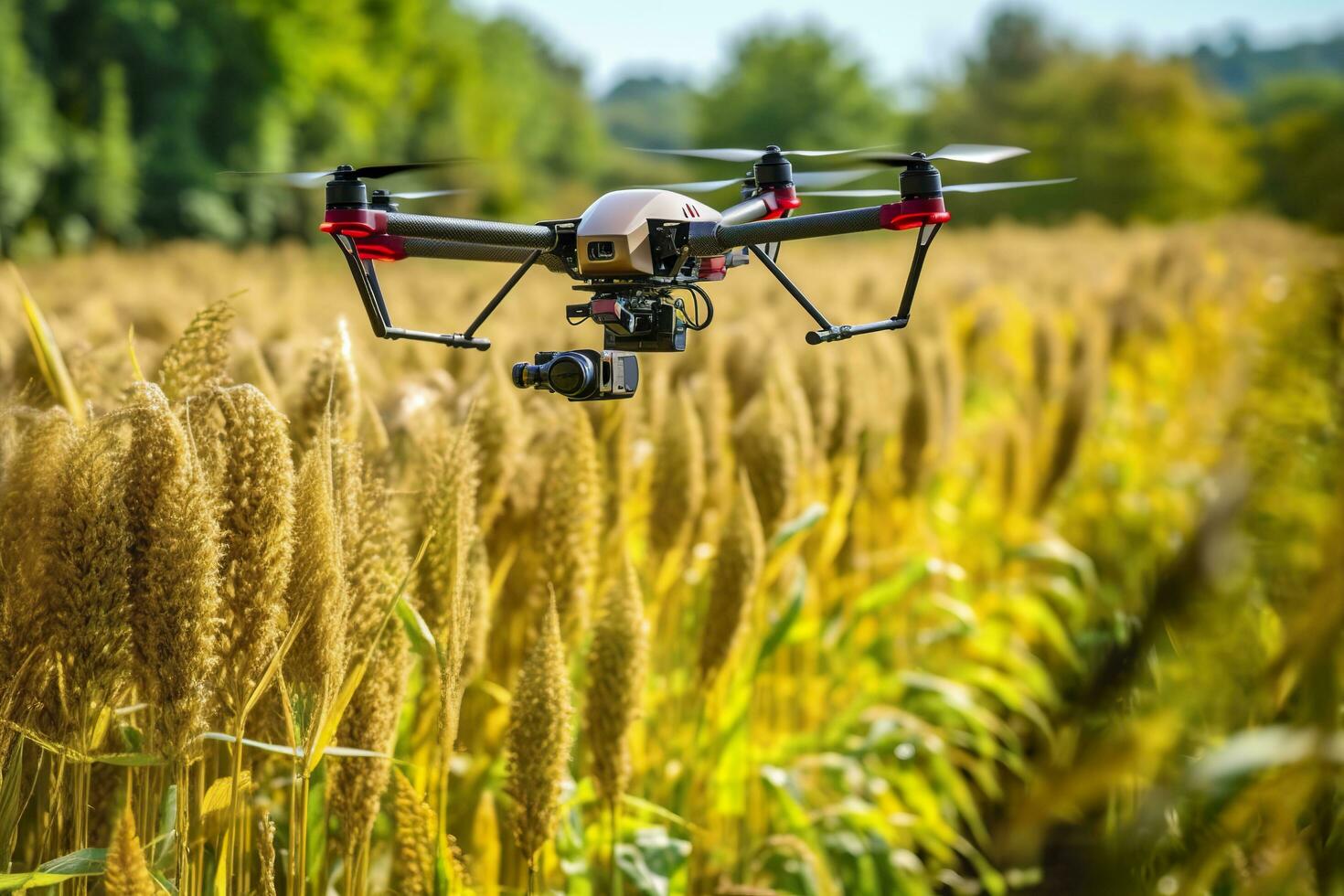A company that provides drone services to farmers said it has seen a big increase in interest within the sector.
The unmanned aircraft can currently be used to spray fertiliser or sow seed in fields.
The emerging technology avoids the need to put heavy machinery onto the ground, which can lead to problems such as soil compaction.
Restrictions currently in place prohibit the use of pesticides, although operators hope airborne chemical treatments may be approved in the future.
According to Steve Frost, director of Berkshire-based SAS Land Services, the ability to farm from the air gives a seasonal advantage.
"We can get out there earlier in the season when the crops actually need fertiliser," he said.
"If it is too wet to put a tractor out there, or a tractor would be too heavy and cause too much damage."
The drone has an interchangeable payload and, as well as liquid fertilisers, can also be used to sow seed onto a field.
Mr Frost said: "We can put seeds down once the main crop has been drilled - we can under sow that with a companion crop with out causing any damage to the growing crop."
In its first year in 2024 the company provided drone services for about 800 acres of farmland, with that rising to 3,500 acres so far this year.
"I think there's quite a lot in terms of reducing environmental impact," Mr Frost said.
"We're running off electric batteries. Currently we have to charge using petrol generators, but we're using a lot less fuel per day compared to a tractor out there doing the same thing.
"If they were drilling with a tractor they would take a lot longer so you've got more emissions coming off that tractor with more and more soil disturbance to do that operation."
The drone is capable of lifting a 50kg payload and can either be flown manually or follow a predetermined route.
Mapping data that includes boundary points and obstacles can be uploaded, but onboard radar and cameras constantly scan the aircraft's surroundings.
Artificial intelligence works out the most efficient way to cover the field while returning back to the take off point to have batteries changed.
With a full cargo flight time is about five minutes, but it can be extended as the drone is usually flown with only enough product for the assigned task.
If approval is given for the use of chemicals, Mr Frost said the technology would show its full potential.
Spraying drones can also target specific parts of a crop that need attention, having been picked up by smaller mapping drones with multispectral lenses.
"We can detect plant health using these cameras, things that you might not see through the naked eye," Mr Frost said.
Source - https://www.bbc.com













